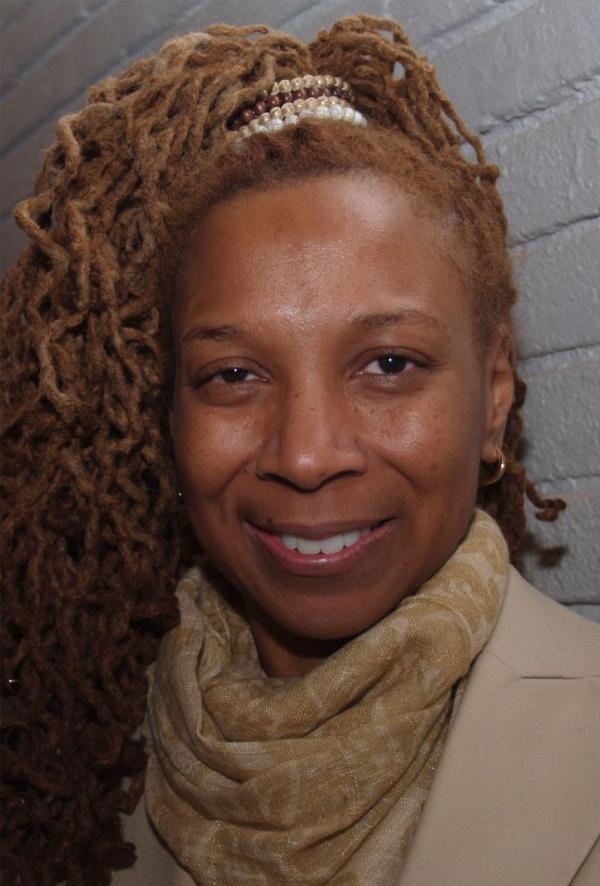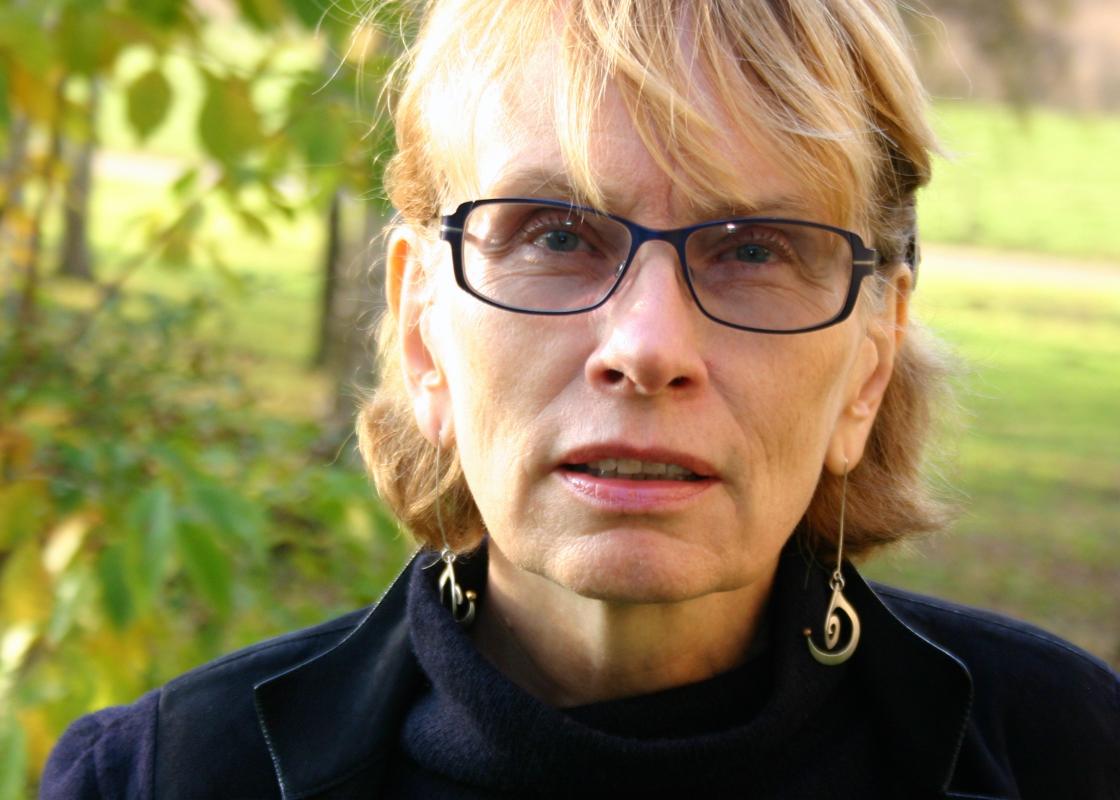There is something wrong with contemporary feminist theory, according to Toril Moi.
“Theory today has become so abstract and overgeneralised that it no longer says anything relevant about women’s lives.”
Moreover, Moi notes, the narrow understanding of concepts in feminist theory leads to a kind of moral policing of feminist usage. As a result scholars working on feminism and gender feel they have to apologize in advance before using certain words, to make sure they don't use them in the "bad" way
“We need a more flexible and ordinary view of language,” says Moi.
“The very foundation for feminism and feminist theory is the wish to make the experiences and lives of women intelligible,” she says, with reference to the philosopher Marilyn Frye.
According to Frye, the measure of a successful feminist theory is whether it makes us understand something we otherwise would fail to comprehend.
Counterproductive understanding of concepts
To illustrate where feminist theory goes wrong, Moi investigated the concept “intersectionality”, often praised as one of the most significant theoretical contributions made by feminist research.
“The field has produced huge amounts of abstract analyses often expressed in incomprehensible prose,” says Moi.
As a concept intersectionality tries to explain the experience of being exposed to more than one type of discrimination and oppression simultaneously. The concept also attempts to address the power structures which create various types of oppression. The cliché example is trying to understand the forms of discrimination experienced by a black, lesbian woman in a wheelchair.
“Theory today has become so abstract and overgeneralised that it no longer says anything relevant about women’s lives.”
“I choose to look at the concept of intersectionality precisely because I am convinced that the study of such phenomena is crucially important,” says Moi.
“The world would be a better place if academics working in this field actually succeeded in improving our understanding of the complex relations between identity and oppression.”
The problem has two aspects. On the one hand, there is the desire to create one comprehensive theory which covers every case of oppression and exclusion, something Moi thinks is impossible. But the problem is exacerbated when the quest for one comprehensive theory is coupled with a forced and limited understanding of academic concepts.
“Many feminists and intersectionality theorists believe that words such as woman, black – or intersectionality itself – have a clearly bounded meaning, independent of use and context. The result is a self-defeating concern about the inclusion and exclusion of words that no feminist can possibly avoid using.”
See also: The masculine avant-garde that fostered feminism
Challenge to gender research
Moi was recently a keynote speaker at a conference on Nordic gender research in Roskilde, Denmark. There, in front of 150 Nordic gender researchers, she challenged one of their most important theoretical concepts. A revised version of her lecture is forthcoming in the journal New Literary History in summer 2015.
Moi’s discussion on intersectionality is a contribution to a much larger debate among gender researchers from different fields and different continents concerning the interpretation of the concept intersectionality and its use. By now the concept has also become an obligatory key word in public documents, legislation, organisational work, and business strategies related to diversity. Everything is supposed to be intersectional, but nobody really seems to know what it actually means.
According to Moi, the concept will be easier to understand if we start at the beginning. The beginning normally means Kimberlé Crenshaw’s essay Demarginalizing the Intersection of Race and Sex from 1989. Crenshaw, a legal scholar, used the concrete image of a place where streets intersect, in order to describe the discrimination of black women in the US.
Not woman enough, not black enough
Crenshaw shows how American legislation has been used to exclude black women. If a case turned on racism, black women were said not to represent blacks because they were women. If a case turned on sexism, they were said not to represent women because they were black.

It is also impossible, Crenshaw shows, to divide black women’s experiences into two clear-cut parts: one consisting of “pure racism” and another of “pure sexism.” It is like an intersection where you may be hit by several cars simultaneously without being able to determine which car caused the crash. Racism and sexism hit the women simultaneously, not only within the legal system, but also within feminism and anti-racist movements.
“I am a great admirer of Crenshaw’s essay,” says Moi.
According to Moi, Crenshaw applies the concept intersectionality to do three different things.
“For her, the concept describes a situation and an experience. But it is also an intellectual diagnosis of complexity and marginalisation. When the court only sees one power structure at a time, the black women are considered neither sufficiently female nor sufficiently black to “count”. Instead of being considered as representative of both women and black Americans, they are excluded. Finally, Crenshaw uses “intersectionality” as the name of a solution: a call to open our eyes to black women’s lives and experiences, and to always include the most marginalized and oppressed groups in our analyses.”
According to Moi, one of Crenshaw’s strengths is that she doesn’t refer to intersectionality as a theory.
According to Moi, one of Crenshaw’s strengths is that she doesn’t refer to intersectionality as a theory.
“Her text asks for greater attention and awareness, not more theory.”
Scholarly dispute across continents
Crenshaw’s ambition was to create a concept which was easy to understand and applicable in everyday life. But then along came the theorists and took over the concept.
At one of the panels at the same conference where Moi gave her lecture, the Danish researchers Dorthe Staunæs and Kirsten Hvenegaard-Lassen they showed that the use of the concept intersectionality has increased enormously in academic journals since 2008, most strikingly in the US, but also in the Netherlands and in Sweden.
The background for this session was two articles by the American professor Barbara Tomlinson. She claims in the academic journals Signs and Social Identities that the concept intersectionality has been watered down by white, European, feminist theorists who misunderstand and misuse it. According to Tomlinson, they use the concept in a manner which makes the black feminist theorists who first came up with the theory invisible.
“This is a heated debate where a lot of emotions are involved,” said Staunæs.
“We’ve felt pushed into a corner. What are we doing here, and what can we do about it?”
According to the Danish researchers, Tomlinson’s critique is so merciless as to make it hard to respond to. Other American scholars who have taken part in the debate have been much more constructive in their criticism.
Professor Nina Lykke from Sweden just felt angry.
“I am not sure that we should take Tomlinson’s arguments seriously. She applies the same yardstick to everybody; she is marginalising and generalising.”
So simple, yet so hard
The dispute among gender researchers across the continents concerning the application of the theory on intersectionality is exactly what Moi would like to put an end to.
“Did they even discuss what kind of research they were criticised for?” she asks.
“When I mention intersectionality outside feminist circles, people ask whether I really mean 'intersexuality'”.
“What had they actually tried to do with the concept of intersectionality?”
The audience at the session on intersectionality never learned the answers.
The concept isn’t all that well-known, Moi points out.
“When I mention intersectionality outside feminist circles, people ask whether I really mean “intersexuality”. And intersectionality is potentially so important, the idea is important. It’s unbelievable that we manage to make it so difficult.”
“People in Norway have tried to translate the concept and to find less difficult concepts. The Norwegian translation “kryssningspunkter” has been used, and in the Official Norwegian Report NOU 2012:15 Politikk for likestilling (“Politics for Equality”) the concept “kjønn+” (“Gender+”) has been suggested. Would a new word help?”
“Intersectionality is not a great word. Why not try to find a better term? But a new word won’t solve any problems if it is used exactly in the same way as the old one.”
The grand narrative
According to Moi, who considers herself a theorist, the problem lies in the nature of theory, in what we conventionally take theory to be.
In her analysis, she draws on ordinary language philosophy, and particularly the work of Ludwig Wittgenstein. Wittgenstein warns other philosophers against importing criteria from natural science to determine what a good theory is. He warns us against thinking that the task of a theory, or a concept, is to explain what the relevant instances of a phenomenon have in common (the “essence” of the phenomenon), as if the complexity of the world can always be made to fit under clear, unambiguous concepts.
In theory writing today, individual experience sometimes appears, but only as illustrations of the general concept. What can’t be presented as general (but only as particular) is not considered important by the theorist.
In this way, current theory-writing produces a distance between theory and human experience.
According to Moi, many intersectionality theories fall into this trap, precisely because they are looking for the grand narrative, the concept that will explain everything we may want to call “intersectionality.”
“The very hope of ever producing a coherent, totalizing, general theory that can explain every kind of experience of simultaneous oppression and also all the power structures that produce these experiences is impossible. As long as intersectionality researchers strive towards this goal, they are undermining their own project. The search for a theory that explains everything makes it harder, not easier, to understand the world.
“Theorists appear to believe that a word or a concept always needs absolute and precise definitions, and that they carry the same meaning in every context.”
Moi suggests we rather think of intersectionality as a language.
“To learn a language is not to learn a system. We learn how to use old words in new contexts, and to notice and understand how the same word (the same concept) carries completely different meanings in new contexts.”
Quotation marks don’t help
Words will always acquire different meanings in different contexts.
She is tired of the fact that we have reached a point where words like woman or post-structuralism – a word she doesn’t like using herself – must always be used with all kinds of reservations.
“Theorists appear to believe that a word or a concept always needs absolute and precise definitions, and that they carry the same meaning in every context,” says Moi.
“Consequently, we have innumerable articles in which the authors begin by saying that they have problems with certain concepts, and that they don’t intend to be exclusive. But of course they go on to use the very same concepts.”
Putting a word in quotation marks doesn’t help, Moi insists.
“Someone will always say that I use the concept poststructuralist wrongly, and that my use of the concept doesn’t cover all poststructuralists. The same applies to the word woman. It is like you can’t use the word unless it covers all the women in the world. Then you are criticized because you didn’t include this or that particular group of women. It’s as if we are engaged in an impossible struggle to make one word cover everything, a struggle which also reveals an excessive belief that the very fact of mentioning a particular group or category will solve real problems of exclusion.”
“Isn’t it ok to make certain reservations in some contexts in order to specify how you define a word?”
“Of course you may specify what you mean in certain contexts! I am talking about a tendency to provide general statements about what a word must mean, as if that automatically will prevent it from meaning something conservative, essentialist, and restrictive. Having constantly to apologise for your own use of language in advance is depressing. What you mean in saying “woman” depends on the context and who you’re talking to. It’s not true that the word woman is always used in a conservative and heterosexist ways. In my view, we have to take the risk of saying what we mean. Afterwards — if problems have come up — we can settle down to analyse what we actually said.”
“But if you’re talking about women, but primarily mean white women’s lives and experiences – isn’t it better to be explicit about it?”
“That too depends on the context. I wrote a whole book about Ibsen, in which I spend many pages discussing Ibsen’s women. But I don’t think I ever declare that I am only talking about white women. But if you are in the US, and you know that you are talking about white women, you should definitely specify it. Americans are extremely conscious about race. If someone only talks about white women without acknowledging it, it is perfectly fine to ask: “Did you look at differences in relation to minority women?” But there is no point in asking someone to define the concept woman in the abstract. The point is to ask whether specific perspectives have been neglected or excluded.”
“We shouldn’t turn ourselves into a moral police where we have to make every possible ethical and political reservation before we can say anything. It is confining, and it’s bad for our intellectual creativity.”
Words such as woman and black are no more complex than other words. They’re just far more politically contentious.
“Words alone don’t determine their meaning; it is the use that is decisive.”
“We’re not solving any political disagreements by focusing our attention on definitions.”
“In my view, words aren’t clearly bounded essences. This is why I don’t think concepts are “exclusionary” just because they are concepts. Prefatory declarations about what I want my words to mean, and not mean, don’t help. What matters is what you actually say: we can only analyze an utterance once it exists,” says Moi.
Words and use
In the wake of theories on intersectionality and the critique of exclusionary concepts, the Indian Professor of literature Gayatri Chakravorty Spivak launched the idea of “strategic essentialism”.
According to this idea, groups with significant internal differences can nevertheless represent themselves as a unitary group falling under one specific category such as nationality, ethnicity, sexuality or the like in order to acquire a voice in the political debate. It is like a false, but strategic group identity.
According to Spivak, however, most people misunderstand her concept.
“Spivak was brilliant enough to realise that “strategic essentialism” doesn’t work in practice,” says Moi.
“There is no difference between uttering the word woman strategically or non-strategically. You still say woman. How are others supposed to know that you’re using the word strategically? Words alone don’t determine their meaning; it is the use that is decisive.”
Dare to be concrete
Moi prefers to talk about feminist thinking rather than feminist theory.
“Thinking is an ongoing thing. Feminism is a concept we use to criticise the oppression of women. It’s a vision of justice, freedom and equality for women,” says Moi.
“But now, someone will probably remind me that there are other types of oppression, and that not everybody fit under the category of women. And I agree, of course. But I don’t agree that it’s a solution to stop using the words feminist and woman. We don’t advance the lgbt case, for example, by accepting that the word woman always must mean the same thing. That’s just to agree that the word must always have an ultraconservative meaning. The irony is that this is the unintended result of our own efforts to be more inclusive.”
According to Moi, the debate concerning the correct usage of concepts has become a straitjacket for feminists and gender researchers. As theorists we need to stop despising individual experience and dare to be concrete.
“Feminism isn’t a personal identity; it is a political position and an analysis of the world. To disagree with someone’s feminist analysis is quite different from challenging someone’s legitimacy as a woman. We have to expect disagreements in the discussion of what is the most convincing feminist analysis of a given topic. Precisely such disagreements can lead to highly illuminating discussions!”
The goal is not agreement, but conversation
Moi herself has not written anything on intersectionality before.
“Who am I, then, to talk?” she asks before suggesting objections to her own perspective.
People may for instance point out that many intersectionality studies deal with specific human experiences; they’re not all abstract theories, i.e. that her critique doesn’t apply to all intersectionality theories, research or feminists.
“People may also accuse my text of being just another abstract theoretical text; an anti-theoretical theory, out to undermine a flourishing theoretical field. An antitheoretical meta-theory. All I can say to that is to invite you to see if you recognise any of the things I’m talking about,” she says.
“Maybe you can find things I have left out. Maybe you can come up with more complicated examples. Such examples can improve our understanding of the phenomenon. What I can’t do, is to offer an elegant alternative theory, since I don’t think any such theory exists. This isn’t about having to agree on everything, but about beginning a genuinely philosophical or theoretical conversation.”
Interested in feminist theory? Sign up for our monthly newsletter!
Toril Moi is Norwegian.
She is James B. Duke Professor of Literature and Romance Studies, and Professor of English, Philosophy, and Theater Studies at Duke University.
Her lecture Thinking As A Feminist: What Ordinary Language Philosophy Can Do for Feminist Theory, was one of the keynote lectures at the NORA Conference – Voices in Nordic Gender Research hosted by Roskilde University 5 – 7 November 2014.


